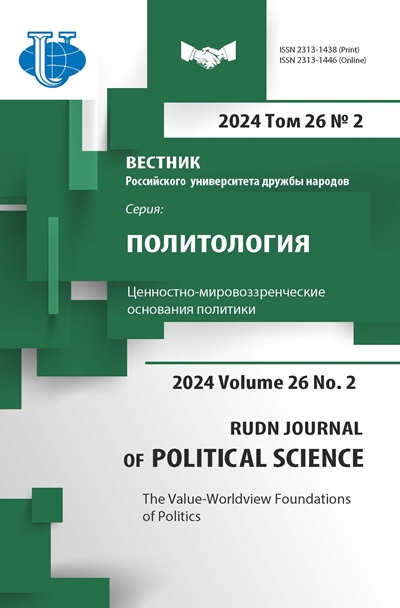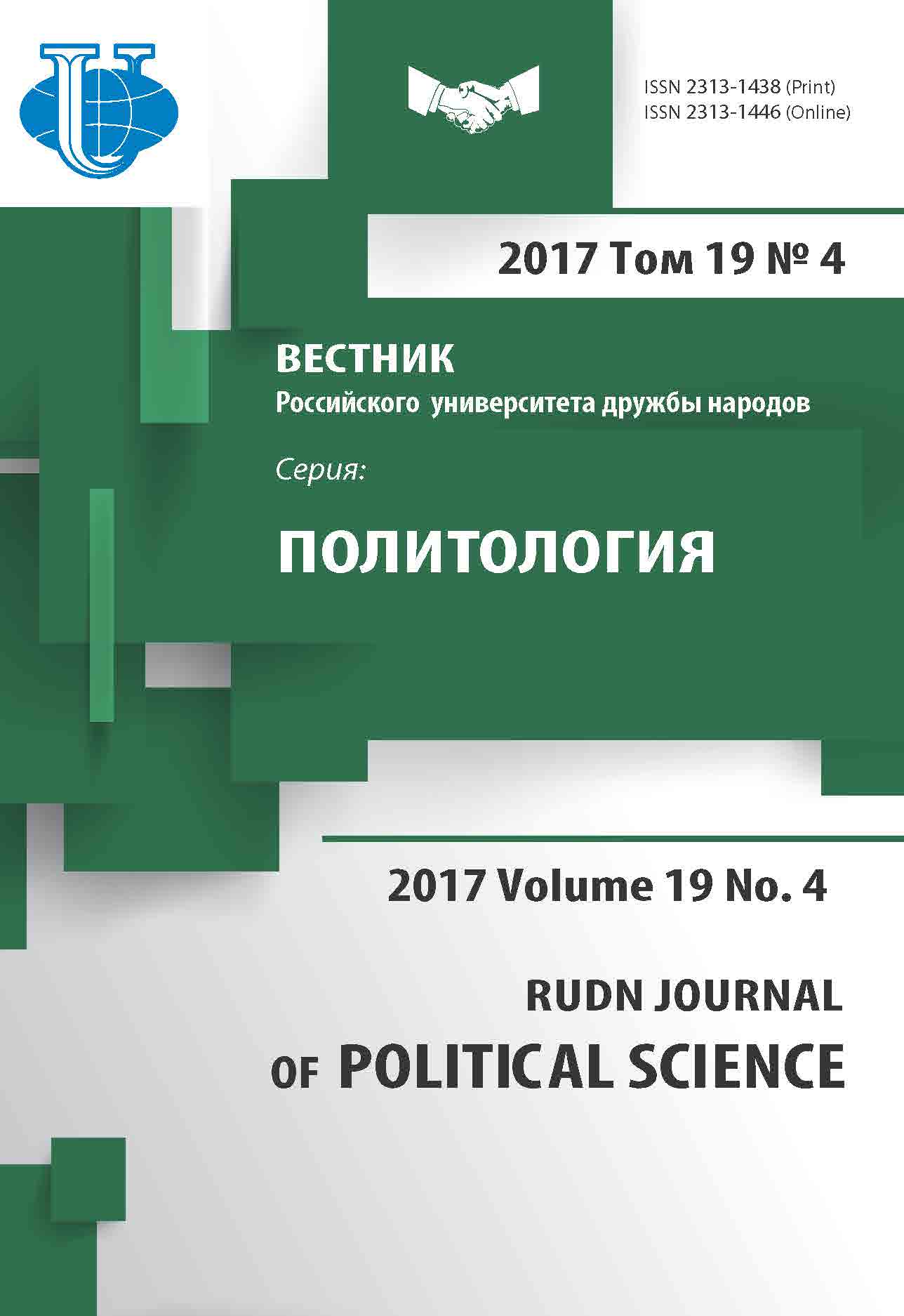POLITICAL REGIMES AND REGIME CHANGES IN THE MIRROR OF ACADEMIC DISCOURSE
- Authors: Kharitonova OG1
-
Affiliations:
- Moscow State Institute of International Relations (MGIMO University) under Ministry of Foreign Affairs of Russia
- Issue: Vol 19, No 4 (2017)
- Pages: 379-391
- Section: ARTICLES and REVIEWS
- URL: https://journals.rudn.ru/political-science/article/view/17571
- DOI: https://doi.org/10.22363/2313-1438-2017-19-4-379-391
Cite item
Full Text
Abstract
The article reviews the state of the recent comparative research on political regime and regime changes and the democratization prospects after authoritarian regime breakdown. The main methodo-logical problems facing the researchers of political regimes who use the regime variable in comparative research are the conceptualization, classification and operationalization of political regimes in which political changes may or may not occur. The author studies typologies of nondemocratic political regimes, the aspects of one-party, military and personalist regimes, their survival logic and the democratization prospects for every type of authoritarian regimes. Each type of authoritarianism has its own logic and inner dynamics, hence different regime-changing trajectories. Particular attention is paid to hybrid regimes as the most conceptually blurred category. Methodological problems of studying regime change include concept stretching, conceptu-alization of successes and failures and also the distinguishing of potentially relevant cases in order to increase the number of cases, since the events studied are rare events. The article proceeds to study the po-litical changes from the perspective of democratic transition theories and discusses the advantages and disadvantages of two main approaches to studying political regime changes, i.e. the structure-oriented and the agency-oriented.
About the authors
O G Kharitonova
Moscow State Institute of International Relations (MGIMO University) under Ministry of Foreign Affairs of Russia
Author for correspondence.
Email: o.haritonova@inno.mgimo.ru
Kharitonova Oxana - associate professor, PhD (political science), MGIMO University, Russian Federation.
Vernadskogo Av., 76, Moscow, Russia, 119454References
- (in Russ).
- Haritonova O.G. Jetnicheskie vojny i postkonfliktnaja demokratija. Politicheskaja nauka. 2016; 1. S. 34—59 (in Russ).
- Belkin A., Schofer E. Toward a Structural Understanding of Coup Risk. Journal of Conflict Resolution. 2003; Vol. 47; 5. P. 594—620.
- Gates S., Hegre H., Jones M. P., Strand H. Institutional Inconsistency and Political Instability: Polity Duration, 1800—2000. American Journal of Political Science. 2006; Vol. 50; 4. Р. 893—908.
- Gandhi J., Przeworski A. Authoritarian Institutions and the Survival of Autocrats. Comparative Political Studies. 2007; Vol. 40; 11. P. 1279—1301.
- Geddes B. Minimum-winning Coalitions and Personalization in Authoritarian Regimes. Annual Meetings of the American political science association. Chicago, 2004. Available from: http://www. sscnet.ucla.edu/polisci/cpworkshop/papers/geddes.pdf.
- Geddes B. What Do We Know about Democratization after Twenty Years? Annual Review of Political Science. 1999; 2. P. 115—144.
- Geddes B., Wright J., Frantz E. Autocratic Regimes and Transitions: A New Data Set. Perspectives on Politics. 2014; Vol. 12; 2. P. 313—331.
- Hale H. Democracy or Autocracy on the March? The Colored Revolutions as Normal Dynamics of Patronal Presidentialism. Communist and Post-Communist Studies. 2006; Vol. 39; 3. P. 305—329.
- Kebshul H.G. Operation “Just Missed”: Lessons from Failed Coup Attempts. Armed Forces and Society. 1994; Vol. 20; 4. Р. 565—579.
- Kendall-Taylor A., Frantz E. How Autocracies Fall. The Washington Quarterly. 2014; Vol. 37; 1. Р. 35—47.
- Lane D. The Orange Revolution: “People’s Revolution” or Revolutionary Coup? British Journal of Politics and International Relations. 2008; Vol. 10; 4. Р. 525—549.
- Magaloni B., Kricheli R. Political Order and One-Party Rule. Annual Review of Political Science. 2010; 13. P. 123—143.
- Mahoney J., Goertz G. The Possibility Principle: Choosing Negative Cases in Comparative Research. American Political Science Review. 2004; Vol. 98; 4. Р. 653—669.
- O’Donnell G., Schmitter P. Transitions from Authoritarian Rule: Tentative Conclusions about Uncertain Democracies. Baltimore, MD: Johns Hopkins University Press, 1986. 81 p.
- Powell J.M., Thyne C.L. Global Instances of Coups from 1950—Present. Journal of Peace Research. 2011; Vol. 48; 2. P. 249—259.
- Powell J.M., Thyne C.L. Coup d’etat or Coup d’Autocracy? How Coups Impact Democratization, 1950—2008. Foreign Policy Analysis. 2016; Vol. 12; 2. Р. 92—213.
- Schock K. The Practice and Study of Civil Resistance. Journal of Peace Research. 2013; Vol. 50; 3. P. 277—290.
- Symposium: A Force More Powerful. PS: Political Science and Politics. 2003; Vol. 33; 2. P. 146—187.
- Thompson M.R. Democratic Revolutions: Asia and Eastern Europe. N.Y.: Routledge, 2004. 180 p.
















